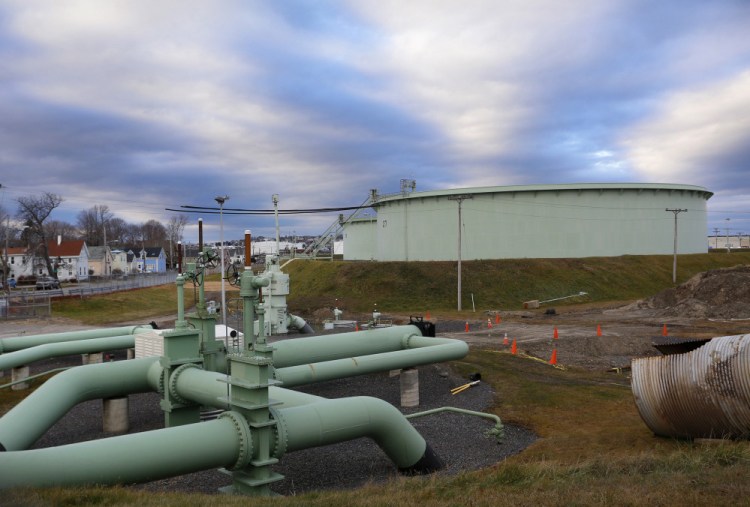SOUTH PORTLAND — City Assessor Jim Thomas has denied a request from the Portland Pipe Line Corp. for a 42 percent reduction in the $44.7 million assessed value of its real estate and personal property across the city.
One of the largest taxpayers in South Portland, the pipeline company sought an abatement on the assessed value of its holdings stretching over 210 acres, from its oil tanker pier at Cushing Point on Casco Bay to a vacant 72-acre wooded parcel off Highland Avenue.
In its abatement application, the company based its request on shifting economic factors and the city’s Clear Skies ordinance, which the company is challenging in federal court. But the application offered no details to support the requested property value reduction from $44.7 million to $26 million.
Passed by the City Council in 2014, the ordinance’s ban on crude oil exports has “significantly reduced the value” of the South Portland-to-Montreal pipeline, the application said. The company, a Canadian-owned subsidiary of ExxonMobil and Suncor Energy, also “suffers from severe economic obsolescence that has not been taken into account in the assessment,” the application said.
Thomas subsequently asked for specific and sweeping documentation about company operations to support its assertion “that the property ‘is substantially overvalued’ and provide copies of any information that supports this assertion.”
While the company provided thousands of documents in response, Thomas ultimately found that it failed to accurately respond to his specific requests and that the documents provided failed to support the requested abatement amounts.
“A general reference to a confidential USB (computer flash drive) that contains 14,048 documents on it is nonresponsive,” Thomas wrote in his denial letter sent Thursday. “(The company) has not met its burden of proof to show the assessment to be ‘manifestly wrong,’ as is required by law to support the requested abatement amounts.”
Thomas declined to comment on his decision beyond the contents of the letter. The company’s request comes at a time when property values in general are rising across the city, especially along the waterfront.
The company issued a one-line statement Friday saying that it was disappointed by the assessor’s decision and will be evaluating its options.
The company has 60 days to appeal the decision to the city’s Board of Assessment Review. It could proceed to court if the matter isn’t resolved at the municipal level.
In seeking information to support the company’s application, Thomas asked for more than 50 types of documents from the last several years, including recent property appraisals, inventories and records of capital improvements; company budgets, financial forecasts and capital plans; and engineering, feasibility and market studies on the potential of shutting down, cleaning up, redeveloping or selling pipeline properties.
The 236-mile pipeline, which has carried foreign crude for 75 years, has largely shut down since refineries in Montreal started drawing oil from western Canada and North Dakota. The Clear Skies ordinance prevents the company from potentially reversing the pipeline’s flow to bring oil from Canada to tankers in South Portland.
If Thomas granted the abatement as requested, the company’s annual property tax bill for the fiscal year that ended June 30 would fall from about $791,190 to $460,200, based on a tax rate of $17.70 per $1,000 of assessed property value. The city would lose about $330,990 in tax revenue, adding to the more than $1 million that taxpayers have spent so far defending the Clear Skies ordinance against the pipeline company’s lawsuit.
Kelley Bouchard can be contacted at:
kbouchard@pressherald.com
Send questions/comments to the editors.


